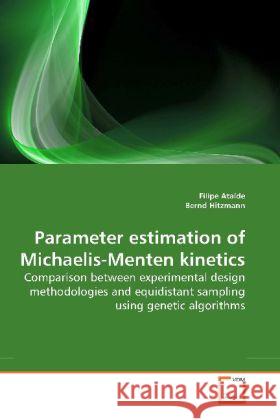Parameter estimation of Michaelis-Menten kinetics » książka
Parameter estimation of Michaelis-Menten kinetics
ISBN-13: 9783639253344 / Angielski / Miękka / 2010 / 88 str.
The main objective of this work was to investigate the application of experimental design techniques for the identification of Michaelis-Menten kinetic parameters. More specifically, this study attempts to elucidate the relative advantages/disadvantages of employing complex experimental design techniques in relation to equidistant sampling when applied to different reactor operation modes. All studies were supported by simulation data of a generic enzymatic process that obeys to the Michaelis-Menten kinetic equation. Different aspects were investigated, such as the influence of different reactor operation modes (batch, fed-batch with pulsewise feeding and fed- batch with continuous feeding) and the experimental design optimality criteria on the effectiveness of kinetic parameters identification.
The main objective of this work was to investigate the application of experimental design techniques for the identification of Michaelis-Menten kinetic parameters. More specifically, this study attempts to elucidate the relative advantages/disadvantages of employing complex experimental design techniques in relation to equidistant sampling when applied to different reactor operation modes. All studies were supported by simulation data of a generic enzymatic process that obeys to the Michaelis-Menten kinetic equation. Different aspects were investigated, such as the influence of different reactor operation modes (batch, fed-batch with pulsewise feeding and fed- batch with continuous feeding) and the experimental design optimality criteria on the effectiveness of kinetic parameters identification.











